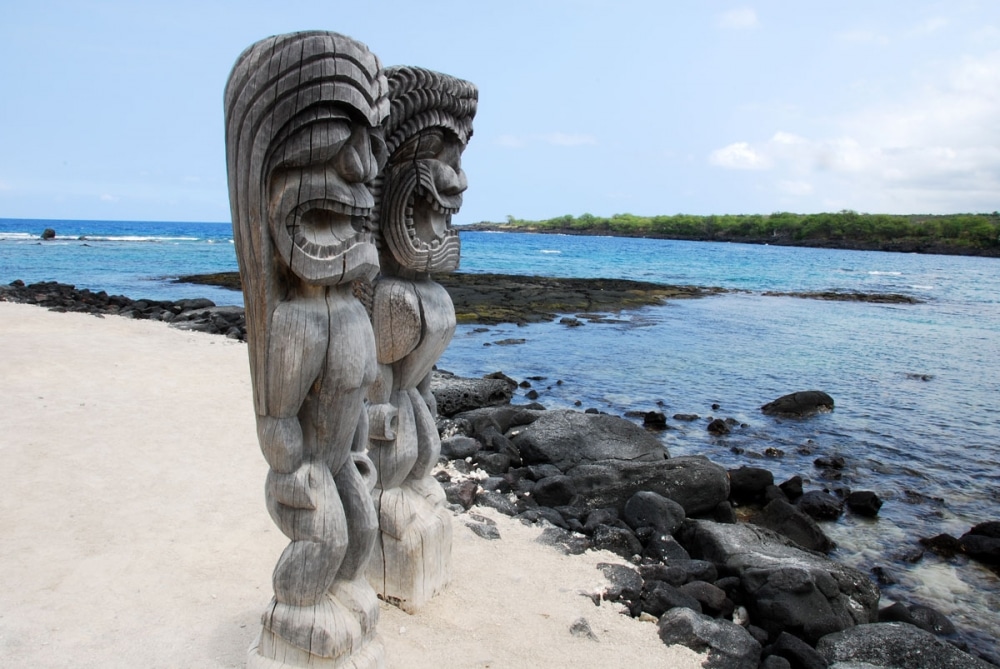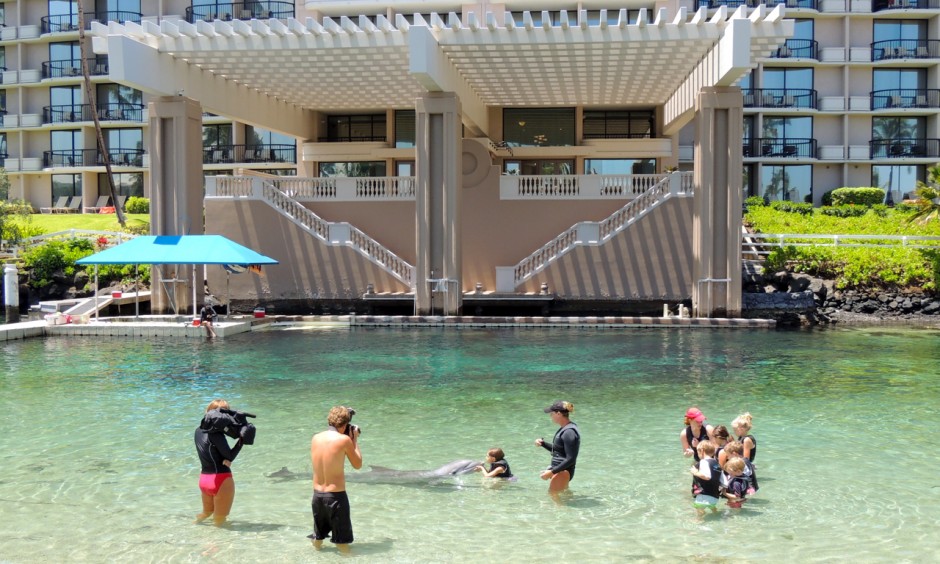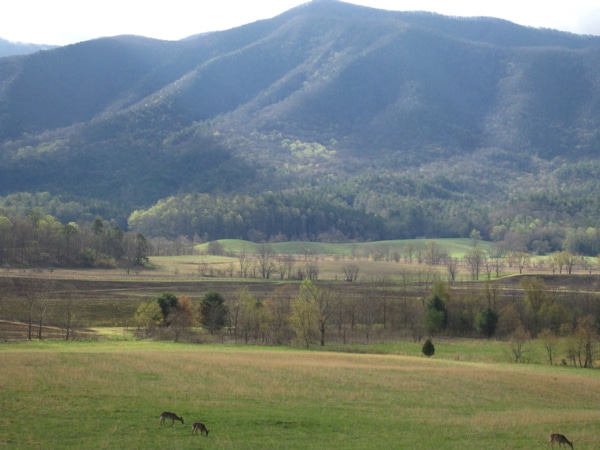While we were resting and visiting family in Joplin, Missouri, we went to the town of Carthage, a few miles away. Carthage was the site of a battle early in the Civil War, in 1861. There was strong southern sentiment in this part of the state, unlike in St. Louis to the east. The town was also home to owners and supervisors of the region’s zinc and lead mines, and there are still some fine old houses on the streets surrounding the central square. The square is dominated by the county courthouse, a magisterial, towered building made of Carthage “marble,” locally quarried limestone so hard that it could be polished like marble. As we drove into town, we noticed a large number of tents set up in front of a group of buildings. There were signs all around in both English and Vietnamese. After the United States was forced by the North Vietnamese Army and the National Liberation Front to leave Vietnam in 1975, numerous Vietnamese Catholics, including many who had been in or were supporters of the US-backed regime in the south (a million Catholics had already fled south from the north when Ho Chi Minh took power after the defeat fo the French), left the country and came to the United States. Some Catholic priests were given an abandoned seminary in Carthage, and this is the site of the big annual festival, which centers around a Marian Days festival, honoring Mary (Mother of God to Catholics), the Co-Redemptrix (this was the name of an order of priests in Vietnam who formed the base for the seminary’s rebirth in Carthage). Tens of thousands of Vietnamese Catholics from around the country flock to Carthage for the celebration. At first locals were hostile and racist, but today the festival brings money to town, and Carthage has made its peace with the Vietnamese, even holing an annual Vietnam Day.
I don’t give many restaurant reviews in my travel writings because we almost always prepare our own meals. However, if you find yourself in Joplin and hungry, I recommend Crabby’s Seafood Bar and Grill (http://www.crabbysseafood.com/menu.htm). Both times we’ve eaten there, the fish was delicious, imaginatively prepared and cooked just right. Might be the best restaurant in town.
We were not anxious to begin the tour again; it is hard to have a long break and then get back into a routine of long drives, finding a motel, getting groceries, finding the bookstore or other venue, giving the talk, meeting new people, and then doing it all over next day. The five-hour drive to St. Louis was uneventful. We ended up at a much overpriced Red Roof Inn along Interstate 44, about fifteen minutes from Left Bank Books (http://www.left-bank.com/) in the lovely, urbane Central West End of St. Louis. The talk there went very well, and we met the brother of Jeff, the husband of Karen’s sister in Joplin. He came to the bookstore with his girlfriend, and we were able to chat for awhile before and after the reading. Both are physicists, and then enjoyed my joke about the good economist being reincarnated as a physicist and the bad economist being reincarnated as a sociologist. We also met a woman who worked in Manhattan for my pension company, TIAA-CREF. She asked if my pension was helping make our journey possible. I said yes. TIAA-CREF’s prudent money management has been much appreciated!
The former TIAA-CREF employee also told us that down the street at a Welsh pub there was a worker from Johnstown, PA who was anxious to meet us. Right after I finished talking to here, a man came up and introduced himself. He was Jerry Tucker, a man with whom I had corresponded but never met. He had written to me that he would try to make the talk, and here he was. Jerry is a legendary labor leader. He graduated from college in the 1950s and went to San Francisco, hoping to be a writer. But fate had other plans. After returning to St. Louis he took a job in an auto plant, and as he put it (we went for drinks at the Welsh pub and talked for two hours), once the class struggle captured his soul, that was it. He became a labor leader, first locally then elected to the United Auto Workers national executive board. He soon came into conflict with the union over its labor management cooperation stance. The UAW prides itself on being a “one-party state,” and is not tolerant of internal dissent. The union waged an aggressive and ugly campaign against Jerry and succeeded in having him defeated and put out of office. But Jerry continued to organize, always trying to push the UAW and the nation’s labor movement to the left, where it belongs. He founded the UAW New Directions Movement in 1985 (http://www.uawndm.org/uawndm/index.htm), has organized many solidarity schools, written numerous articles about labor (see those at www.mrzine.org), and most recently helped to found the Center for Labor Renewal (go to http://www.centerforlaborrenewal.org/ for details and lots of great labor news). Nothing is needed more in this nation than labor renewal. And nothing is needed more than great organizers like Jerry, brothers and sisters who not only can organize but have a vision for the working class that fits the role it must play in radical social transformation.
We were able to take a short stroll around the bookstore neighborhood before the talk. There are many large and beautiful houses, some on private and gated streets, maintained mainly but not totally by the residents. These houses were selling for $30,000 or so just a generation ago, but today you had better have a couple million dollars if you want one.
Our next stop was a town that symbolizes progressive politics in the United States – Madison, Wisconsin. We got a downtown motel, a little more expensive than the motels we typically stay in, but we wanted to be close to the bookstore and we were interested to see Madison. The downtown is largely a student “ghetto,” not particularly attractive, except for the grand capitol building and some of the university’s buildings, including the Student Union, whose back faces Lake Mendota. On Wednesday evening, there were hundreds of people, young and old listening to music by the lake, and in the square around the capitol, even more people were enjoying a free concert. Many groups had set out elaborate supper tables and were eating, drinking, and talking as they took in the concert. Both of these places showed that there is a vibrant street life in Madison, always a healthy sign.
I had several things to do in Madison. I first did a phone interview with a reporter from a Cleveland newspaper, in advance of our visit there on August 8. In the afternoon of our second day in town, we walked to the office of the Progressive, for many, many decades, since its founding by famous progressive political leader, Robert M. La Follette in 1909, a stalwart voice of the left (http://www.progressive.org/). I did a radio interview with editor and publisher Matthew Rothschild, who has a national show. I was excited to do this, not just because of the national exposure but also because I much admire Matthew and the people around the magazine. Matthew has a fine new book out, titled You Have no Rights: Stories of America in an Age of Repression (The New Press, 2007). This is a most timely book. Bush and company have done what they can to turn the US into a police state; you can learn just how far by reading Matt’s book. It was curious to be learn about his book when we did. Just a couple days before, I read that my good friend, Tom Juravich, director of the Labor Studies program at the University of Massachusetts at Amherst, and the person whose sabbatical leave made it possible for me to get a visiting appointment at the University this fall, has been denied a Canadian work permit. Tom is to’ve a visitor himself at a Canadian University but was denied a permit because of a picket line arrest (for an act of civil disobedience) in 1981! Karen and I wondered if Tom’s visible protest against the appearance of Bush staff person Andrew Card as the university’s commencement speaker this past spring had anything to do with Canada’s refusal to allow Tom to work there. I wonder when we’ll wake up to the fact that the current government is as hostile to civil liberties as any dictatorship. As we listened one day to callers on a radio talk show defending the shooting of an unarmed man by two border guards in Arizona, calling for their release despite the overwhelming evidence of their guilt and their conviction by a jury, I thought the answer may be “never.”
The event at the Rainbow Bookstore Collective was very well attended, thanks mainly to the great PR work done by Allen Ruff. Allen is a writer himself and has just had published a novel, titled Save Me, Julie Kogon ( see http://www.thedailypage.com/isthmus/article.php?article=7497 for a review). He is also a friend of Matthew Rothschild. We were told that Madison’s progressive community is very closely knit. There was a lively discussion after my presentation. A young man, who happened to be the son of a good friend and colleague from Johnstown, asked if books like Barbara Ehrenreich’s Nickle and Dimed (and perhaps by implication my own) weren’t a bit deceptive in giving the impression that a person not himself or herself a poor working person, could really know what it was like to be one. I answered that we had not done anything in our journey but live our own lives, making observations along the way. We didn’t go to Yellowstone to see what it was like to be a clerk and a restaurant host. We went because we needed an immediate place to be and something to do. We didn’t do anything with the idea of writing a book. We simply live our lives as we see fit. My book and this book tour are simply my bearing witness to what I have seen, with the hope that readers and listeners will enjoy what I have to say and get angry enough to want to do something about the sorry state of affairs we find ourselves in now.
From Madison we drove to Chicago, one of the country’s very few great cities. We were hosted by a generous couple associated with our venue, The Open University of the Left (http://www.openuniversityoftheleft.org/). Once again, a spacious and beautiful house was a good antidote to a cheap motel. We had dinner in two good restaurants, strolled around the neighborhood, and had a good event. The morning of the event we were fortunate to be able to attend a meeting at a conference sponsored by the Restaurant Opportunities Center (ROC: http://www.rocny.org/) Of New York, a workers’ center aiming to organize the nation’s millions of restaurant laborers. Workers’ Centers are grassroots, community based labor organizations, more broadly focused than traditional labor unions but perhaps with the best shot at revitalizing the labor movement. See http://www.nfg.org/publications/worker_centers_with_cover.pdf for some useful background.
As we got in our car on Sunday morning to head for Milwaukee, we realized that we are both exhausted. The only thing that keeps us going is knowing we have only four more stops to go.






